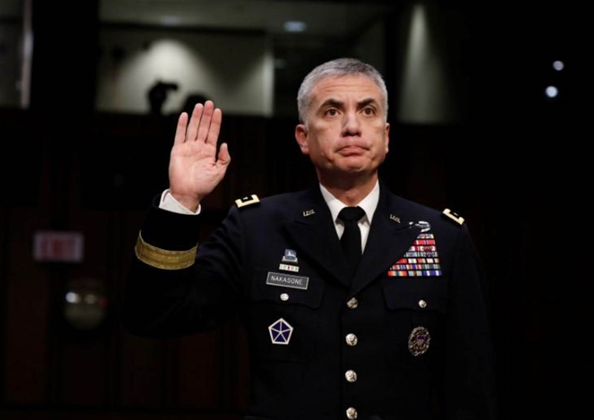The Pentagon’s cyber warfare unit received an elevated status and a new commander over the weekend, signalling the growing importance of digital combat as the US grapples with sophisticated hacking by Russia, China and other actors.

Army Gen. Paul Nakasone took over leadership of US Cyber Command at a ceremony at this base 30 miles north of Washington that featured both traditional military pomp and signs of the new age of warfare.
Cyber Command was elevated on Friday to an independent “unified command,” a bureaucratic change that for the first time puts it on a par with nine other US warfighting commands.
The change is “an acknowledgement that this new warfighting domain has come of age,” Deputy Defense Secretary Patrick Shanahan said.
Shanahan spoke in a massive room that is the hub of a new US$500 million Integrated Cyber Center on the heavily fortified Fort Meade campus.
When it becomes operational in August, US and allied personnel at the center will monitor and coordinate responses to cyber threats.
“We are ready to unleash our cyber mission forces,” said Marine Lt. Gen. Vincent Stewart, Cyber Command’s deputy director.
Nakasone also took over Friday as director of the National Security Agency, which conducts electronic surveillance and protects US national security agencies’ computer networks against hacking.
Under a “dual-hatted” arrangement, the NSA director also oversees Cyber Command.
Nakasone succeeds Navy Adm. Michael Rogers, who came to the NSA in 2014, when it was still reeling from massive breaches of highly classified data made public by former contractor Edward Snowden.
At his confirmation hearing in March, Nakasone appeared to favour a more robust response to cyber attacks such as those by Russia, which US intelligence agencies say meddled in the 2016 US presidential election, a finding that Moscow has denied.
“Our adversaries have not seen our response in sufficient detail to change their behaviour,” Nakasone told lawmakers. “They don’t think much will happen,” he said.
Cyber Command includes military units trained to both defend against cyber attacks and to initiate them.
But while Cyber Command has conducted operations against groups like Islamic State, US presidents have been loathe to get in a cyber war with major nations like Russia or China.
The reason, officials have said, is that the United States, with its reliance on computer and communications networks, is more vulnerable than its adversaries.


_(33).jpg&h=140&w=231&c=1&s=0)
_(28).jpg&h=140&w=231&c=1&s=0)

.png&h=140&w=231&c=1&s=0)





 iTnews Benchmark Awards 2026
iTnews Benchmark Awards 2026
 iTnews Executive Retreat - Security Leaders Edition
iTnews Executive Retreat - Security Leaders Edition
 iTnews Cloud Covered Breakfast Summit
iTnews Cloud Covered Breakfast Summit
 The 2026 iAwards
The 2026 iAwards












_(1).jpg&h=140&w=231&c=1&s=0)



